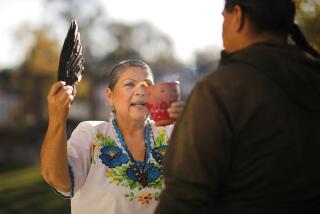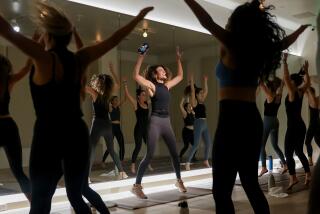Fuller to Restore Healing Class--With Revisions
- Share via
A popular “hands-on” class in healing, dropped by Fuller Theological Seminary amid faculty controversy a year ago, will be reinstated this spring under guidelines that school officials say could help evangelical churches deal responsibly with claims of the miraculous.
A 100-page report released this week by the Pasadena seminary said the revised class members’ exposure to healing sessions--now limited to observing two church services off campus--will be critically evaluated by several faculty members.
But in observations reflecting more than its own academic decisions, the Fuller faculty urged churchly caution when cures are claimed in spiritual healing sessions and when attempts are made to exorcise “demons” allegedly possessing a person.
“Sacred human rights could be violated by irresponsible” people who say they discern the presence of demons, the report said.
Also, “the minister who engages in healing should publicize his or her failures as loudly as the successes,” said the report, “Ministry and the Miraculous,” soon to be published as a book.
“Chronicles of healing should include failed attempts to heal, prayers for healing that were answered in death, apparent healings of people who soon relapsed into the disease from which they were healed--all of this alongside of the grateful reports of success,” the report said.
Middle Approach Taken
Seminary President David Allan Hubbard said the report takes a middle approach “between the shoals of denying (the) possibility of miracles in our day and the rocks of presumption that demands miracles according to our need and schedule.”
Under the original format the course broke enrollment records at Fuller, which with about 1,700 on-campus students is the nation’s second-largest seminary. The class drew the maximum 250 students whenever it was offered from 1982 through the fall of 1985, and it often had non-students dropping by.
Fuller’s School of World Missions offered the course to prepare future missionaries to deal with cultures that expect the supernatural as a part of their religious experience. But some School of Theology professors questioned whether healing claims were subjected to critical analysis or put into a historical-biblical framework.
One year ago, when it was announced that the class was being dropped pending a study, Jack Rogers, professor of philosophical theology, said the class was “the most deeply divisive issue on campus in my 15 years here.”
Some students claimed they were miraculously healed of ailments in class, but the experiments in healing did not extend to demon exorcisms, a spokesman said.
C. Peter Wagner and Charles Kraft, full-time faculty members, gave the lectures, but the principal leader of the “laboratory” sessions was the Rev. John Wimber, a charismatic pastor from Anaheim and an adjunct professor in the School of World Missions.
Much of the controversy over the class revolved about Wimber, who was sometimes identified mistakenly on religious television or at evangelical conferences as a regular professor at the seminary.
Wimber “came to be linked much more closely with Fuller in the minds of the public than his busy schedule of pastoral and conference ministry warranted,” Hubbard said in a preface to the report. “His audiences and readers were tempted to impute his opinions and approaches to our faculty more readily than the facts would support.
More to Read
Sign up for Essential California
The most important California stories and recommendations in your inbox every morning.
You may occasionally receive promotional content from the Los Angeles Times.













